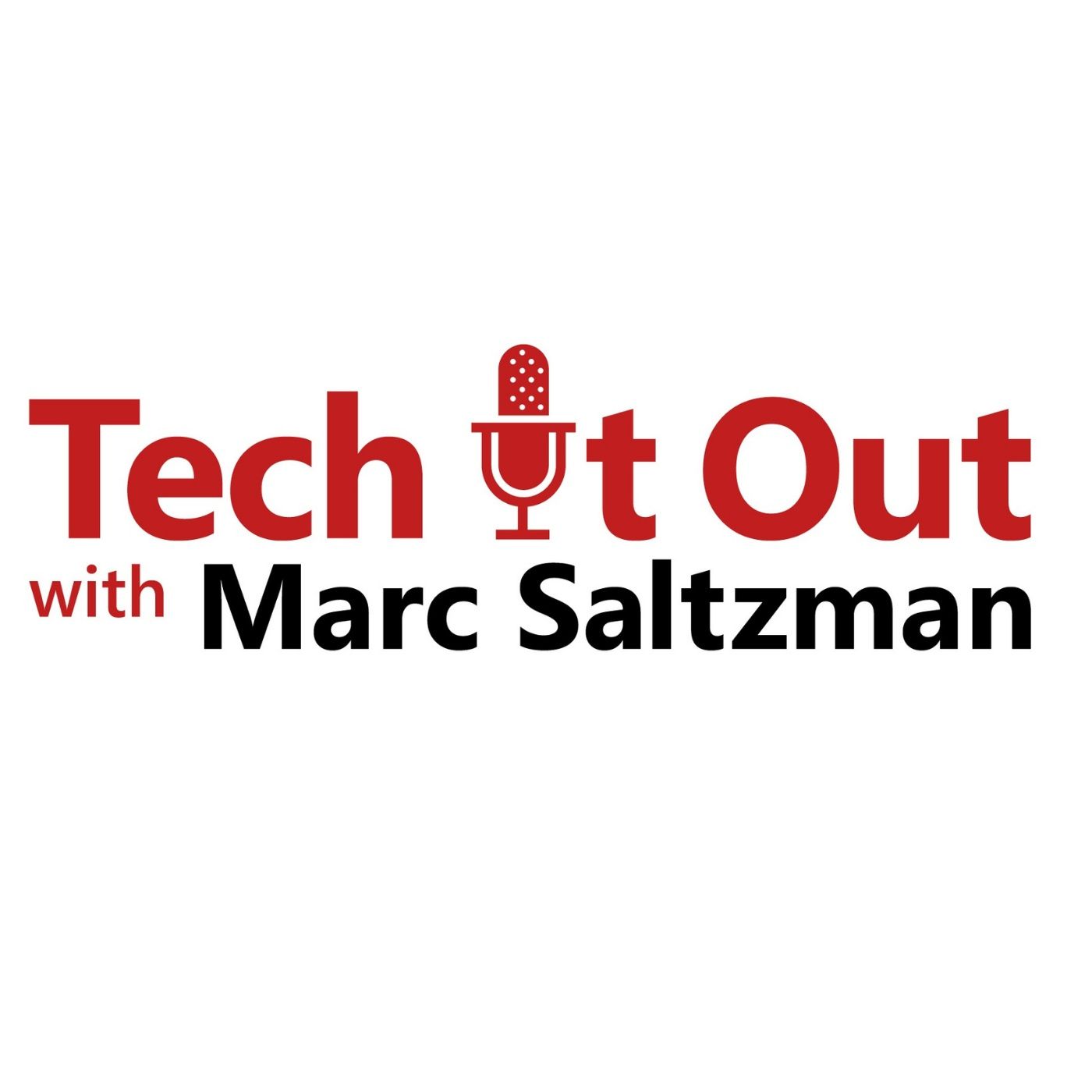
Tech Brewed
Welcome to Tech Brewed, your go-to podcast for the latest in technology products, training, and tips. Whether you're a tech enthusiast or a business professional, our show offers valuable insights into the ever-evolving world of technology.
What We Cover
Home and Business Technology Products
We delve into the latest gadgets and tools that can enhance your home and business environments. From smart home devices to enterprise-level solutions, we keep you updated on the best products for your needs.
Technology Training and Tips
Our episodes are packed with practical advice and training tips to help you maximize your tech investments. Whether you want to improve your cybersecurity or optimize your workflow, we've got you covered.
Creative Technology Software and AI
In today's digital age, creative technology software and artificial intelligence are game-changers. We explore how these innovations transform various industries and offer insights into their practical applications.
Featured Segments
AI and Its Impact
Discover how AI is changing the workplace and driving innovation. Our discussions range from improving audio quality with AI to extending life through advanced technologies.
Practical AI
Our goal is to make artificial intelligence accessible and practical for everyone. We break down complex topics into easy-to-understand segments, ensuring you stay ahead of the curve.
Join us on Tech Brewed for a deep dive into the tech world, where we blend expert knowledge with practical advice to help you navigate the digital landscape. Subscribe now and stay informed on the latest trends and innovations!
Tech Brewed
Raising Digital Citizens: Practical Tips for Protecting Kids Online
Welcome to Tech Brewed, where we make sense of the digital world—one topic at a time. In today’s episode, "Protecting Kids Online," host Greg Doig lays out the challenges our tech-savvy kids face as they navigate the complexities of the internet. Sure, they can swipe through apps faster than most adults, but are they truly equipped to avoid scams, protect their privacy, and handle online interactions safely?
Greg introduces Google’s “Be Internet Awesome” program—a proven curriculum that helps kids from grades two to six, and beyond, build practical skills for digital citizenship. What makes this stand out? It’s fun, effective, loved by teachers, and requires no special prep or equipment. From understanding the importance of a private digital footprint to spotting scams and creating strong passwords, Greg walks us through the five essential rules every child should know online. Plus, with a special focus on AI literacy, he shows how kids can be savvy and thoughtful in an increasingly digital and automated world.
Tune in to learn how we can empower our children—and ourselves—to be confident, safe, and kind online.
MalwarebytesThe cybersecurity protection you need
Disclaimer: This post contains affiliate links. If you make a purchase, I may receive a commission at no extra cost to you.
Subscribe to the weekly tech newsletter at https://gregdoig.com
Welcome back to another episode. I'm your host, Greg Doig. And let's be honest. Our kids know their way around a tablet better than we know our way around our own smartphones. But being tech savvy doesn't automatically make them Internet safe. If you've ever wondered whether your child can spot a scam, know what not to share online or understand why that free game might not actually be free. You're in the right place. Today, I'm diving into Google's Be Internet awesome program. It's a surprisingly brilliant curriculum that actually teaches kids how to be smart online. Here's what caught my attention. Be Internet awesome is the first Internet safety program that's actually been proven to work. The University of New Hampshire tested it and found that kids genuinely learn from it, not just nod along and forget everything five minutes later. The best part? Teachers love it because it requires zero prep time and no fancy equipment. It's designed for grades two to six. And even some high schoolers benefit from some of these concepts. And let's be real, so have some adults. I know. Plus, there's Interland, an actual game where kids can practice being Internet heroes. Because if we're going to teach digital citizenship, we might as well make it fun. So there are five rules every kid should know. It's the Internet code of awesome. Think of these as the basic life skills for the digital world. One, Share with care. Also known as the Internet never forgets. Your digital footprint is like a trail of breadcrumbs, except these crumbs never disappear. Kids learn what should stay private. Here's a hint. Home address, passwords. And that embarrassing story about their little brother. And what's okay to share the key lesson. Once it's online, it's basically permanent. Yes, even that deleted post. Number two, don't fall for fake. This is where kids learn to be digital detectives. They'll spot phishing attempts like congratulations, you've won a million dollars. And recognize catfishing and develop that healthy skepticism we all wish we had before falling for that one weird trick ad the golden rule. If it sounds too good to be true, it probably wants your personal information. And number three, secure your secrets. This is called password power. Kids learn to create strong passwords that aren't password 1, 2, 3 or their pet's name. They also discover why sharing passwords is like giving someone the keys to their entire digital life. Plus, they get introduced to privacy settings and two step verification. Basically the digital equivalent of locking your doors. And number four, it's cool to be kind. Here's where kids learn that real people exist behind those usernames. They practice empathy, learn how their words can hurt or help, and discover how to be helpers instead of bystanders. When someone's being mean online, think of it as teaching them to be the person who stands up to cyberbullies, not the one who just watches. And number five when in doubt, talk it out. Kids learn to be Internet brave, which means knowing when to get help from a trusted adult. They practice refusal skills for uncomfortable situations and understand that reporting bad stuff isn't tattling, it's being smart and strong. And there's AI to worry about too, because apparently regular Internet safety wasn't challenging enough. The program now includes AI literacy lessons for grades two to eight. But don't panic. This isn't about teaching your second grader to code. It's about helping them understand what AI is and how to think critically about it. Here's what kids learn about AI how to Spot AI in Daily life Spoiler it's everywhere what generative AI actually is, and basically, it's a very sophisticated content creator that learned from tons of data. And that AI can be wrong or biased, just like humans, but faster and how to be a Responsible Digital Citizen in an AI world Think of AI as having data as its secret ingredients. It uses patterns in pictures, words, and numbers to make predictions. It can be a finder assistant, personalizer, maker, and organizer. But here's the kicker. AI can have biases and make mistakes, so fact checking is more important than ever. The bottom line? Look, we can't bubble wrap our kids from the Internet, but we can give them the tools to navigate it safely and smartly. Be Internet awesome does exactly that. It turns digital citizenship from a scary lecture into practical life skills. Whether your kid is just starting to explore the online world or is already a digital native who makes you feel ancient, these lessons build the foundation for confident, safe and thoughtful technology use. And to explore these invaluable resources for your children's digital well being, visit the Be Internet awesome homepage at this URL g co Be InternetAwesome and you can find the Interland game at this URL g co Interlam and for Educators. Be Internet awesome curriculum for educators is at this website URL g co BeInternetAwesomeDucators and one more URL for you for family resources. G co BeInternetAwesomeFamilies because raising digitally literate kids shouldn't require a computer science degree, just a little bit of awesome.
Podcasts we love
Check out these other fine podcasts recommended by us, not an algorithm.

Tech It Out
Radio America
My First Million
Hubspot Media
The Startup Ideas Podcast
Greg Isenberg
Lex Fridman Podcast
Lex Fridman
The Rest Is History
Goalhanger
